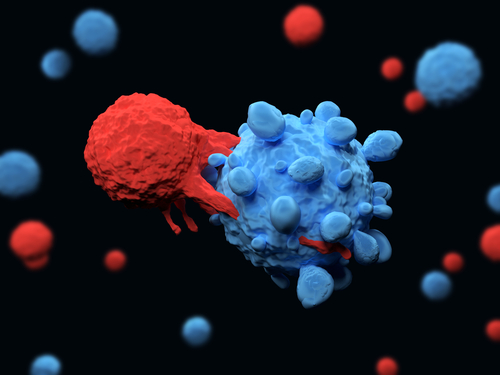The U.S. Food and Drug Administration (FDA) has approved the T-cell therapy ET190L1-ARTEMIS to move into clinical trials for the treatment of relapsed and refractory CD19-positive non-Hodgkin’s lymphoma (NHL).
Following the approval of Eureka Therapeutics‘ investigational new drug (IND) application, the company plans to initiate a Phase 1 trial by March 2018 to evaluate the therapy’s safety and effectiveness.
“If successful, we hope to apply our ARTEMIS T cell technology to a broader class of patients than can be treated with CAR-T therapies, as well as to lower the overall cost of T cell therapies,” Cheng Liu, president and chief executive officer of Eureka Therapeutics, said in a press release. “We are encouraged by the preclinical findings and look forward to quickly moving our therapy into clinical development as we continue to enhance our proprietary ARTEMIS platform of innovative T cell therapies for both liquid and solid tumors.”
ET190L1-ARTEMIS was developed using Eureka’s proprietary T-cell receptor platform ARTEMIS. Much like CAR T-cells, these T-cells are collected from the patient’s own blood and engineered in the lab to recognize a certain cancer protein — in this case, CD19, which is found on most malignant B-cells.
But CAR T-cells are known for an overproduction of immune cell activators, called cytokines, which is associated with severe side effects. ARTEMIS T-cells, however, are designed to regulate cytokine release, minimizing the therapy’s side effects without compromising its effectiveness.
“We designed our ARTEMIS T-cell receptor platform with the goal of improving upon the efficacy and safety of current T-cell therapies,” Liu said. “The agent has a novel receptor that better regulates T-cell activation and cytokine release upon engagement with tumor cells, without sacrificing potency.”
In preclinical studies, the immunotherapy has shown similar anti-cancer activity as current CAR-T therapies. And as expected, it significantly reduced cytokine release, a common CAR-T side effect that in severe situations can be fatal.
ET190L1-ARTEMIS T-cells were also more stable in mice than CAR T-cells and kept their reactivity for longer periods. If these features are confirmed in clinical trials, this immunotherapy may be promising for NHL patients.
“My team is excited to work with Eureka Therapeutics in bringing this innovative therapeutic approach to the clinic, which has the potential to reduce the serious side effects that I have seen in patients being treated with current approaches,” said David A. Rizzieri, MD, professor and associate director for clinical research at the Duke Cancer Institute, Duke University School of Medicine, and principal investigator of the Phase 1 clinical trial.


